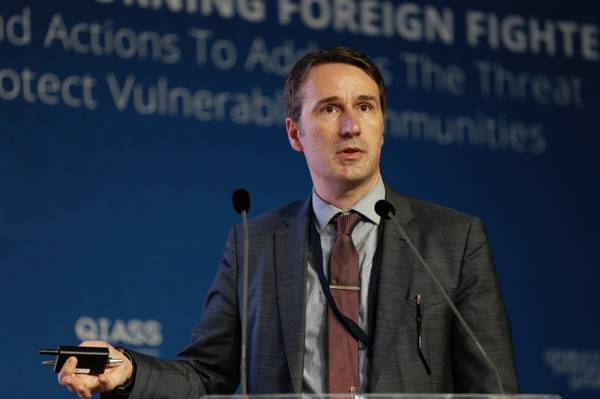Expert to ANSA, foreign fighters return challenge to Balkans
EU needs to boost financial and technical assistance
12 August, 18:27North Macedonia has 42 per million. To put these numbers in perspective, the UK has 6 returnees of "national security concern" per million, Germany and France about 4 per million.
Italy has only 12 reported returnees (0.2 per million) in total.
The numbers paint a clear picture of the size of the national security and social challenges facing the Western Balkans.
This is a long-term challenge that becomes even more daunting when considering the insufficient financial resources, capacities, and specialized expertise available in the Western Balkans. The need for assistance is abundantly clear, especially considering that 500 other nationals of the Western Balkan countries are still in Syria and Iraq, mostly held in Kurdish prisons and camps, waiting to be repatriated. Their eventual return is bound to intensify the challenge. The EU and its specialized agencies would do well to consider any assistance rendered to the Western Balkans for the purpose of addressing this challenge less as "help to the Balkans" and more as a strategic investment in the EU's own security. Do you think that returnees from Syria and Iraq pose a serious security risk for the Balkans and for Europe? That's the million-dollar question. Unfortunately, there is no "one-size-fits-all" response. Returnees from Syria and Iraq associated in one way or another, actively or passively, with a terrorist organization like the Islamic State represent a potential national security risk by default. Yet, it is important to make a distinction between general security "risk" (or danger) and security "threat." While the potential national security risk by returnees is not debatable, whether or not they represent an actual threat, and what level of threat, will have to be determined through professional assessments of each individual. This assessment is a complex, time consuming, and costly process that requires continued monitoring and evaluation of returnees.
Deradicalization is not an easily measurable process. The first goal would be to get returnees, and those coming out of prisons after serving time for terrorist activities, to disengage from violent extremism. Children, from the humanitarian point of view, are victims, because they did not decide to go or be born in Syria and Iraq.
Nevertheless, from a security stand point, it is not possible to ignore the fact that some of these children have received military training in terrorist camps, have been heavily indoctrinated, have sometimes participated in armed combat and possibly in the execution of prisoners. There are numerous Islamic State propaganda films showing training camps for the children of the mujahideen, or the "cubs of the Caliphate." Dealing with these children is going to be a long-term challenge. Likewise, the point of view that women have mostly been victims that have gone to Syria against their will, or were manipulated by their spouses, is a generalization that is not supported by evidence. You wrote about the dissemination of jihadi propaganda through social media in the Western Balkans. Is that still an ongoing phenomenon and how dangerous is that in a long term perspective? While recently there has been a drop in jihadi propaganda output in Western Balkan's languages, "social media jihadis" consistently continue to target audiences in the Western Balkans, disseminate the ideology and propaganda of terrorist organizations like ISIS and al Qa' ida, and incite terrorist violence. In a way this should not come as a surprise as the foreign fighters are only the more visible manifestation of a larger jihadist problem in the Western Balkans that includes those who though committed to the cause, may have never traveled to Syria and Iraq to wage armed jihad. Much like elsewhere, they generally have become less defiant in their language compared to previous years and have largely migrated from the more popular social media platforms like Facebook or Twitter to less conspicuous ones that provide more anonymity and end-to-end encryption. This makes the task of law enforcement agencies in charge of monitoring these clusters of "social media jihadis" harder. In sum online dissemination of jihadi propaganda is an ongoing phenomenon in the Western Balkans. The fact that the jihadist presence online is less visible relative to a few years ago is not necessarily an indicator of less commitment by local radicals to the cause. While the territorial defeat of the Caliphate may have dampened the enthusiasm of would-be jihadis to fight abroad the number of recently foiled terrorist attacks and terrorism-related arrests across the Balkans are indicative of ongoing terrorist activities in the region. (ANSA).














